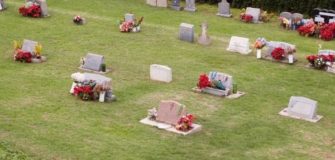88% support compulsory first aid training for Australian teenagers
Share
A new study conducted by Australian Red Cross reveals that 88% of Australians believe first aid training should be compulsory in high schools across the nation[1], with 70% supporting first aid knowledge as part of the driver license application process.[2]
Currently, first aid training is not compulsory in Australian schools or for driver licenses. The pandemic presents additional challenges: 82% of Australians would be worried about catching COVID-19 from a first aid emergency, and this fear means over half of us (57%) are unsure whether we would actually step in to help in an emergency situation[3]. Millennials and Gen Zs (18-34 year olds) were most convinced they would catch COVID-19 if they administered CPR[4].
With this in mind, and in a move to raise first aid knowledge among young people and their educators and carers, Australian Red Cross is launching free first aid training online and via TikTok on World First Aid Day, Saturday 11 September 2021.
“In the schoolyard, on the sports field, at home or out with friends, our experience tells us young people are often the first responders in emergency situations,” said Wendy Greenhalf, Head of First Aid and Mental Health Training from Australian Red Cross. “In the UK, first aid education is part of the school curriculum. Our research shows the vast majority of Australians believe this should be the case here too.”
“We want our young people to be First Aid Champions, ready to step up and help out when there’s an emergency. That’s where teaching first aid in high school could come into play. Arming young people with the knowledge and skills to step up in an emergency could help reduce pain at the time of injury or long term damage,” Wendy Greenhalf said.
The training session will be presented online by accredited Australian Red Cross first aid trainers.
Trainers will demonstrate essential first aid skills, including treating burns, broken bones, head injuries, strains and sprains, asthma attacks and severe allergic reactions. Participants will also learn vital skills in dealing with potentially life-threatening emergencies such as choking, heart attacks and swallowing harmful substances.
“We encourage all Australians to learn new skills or renew existing ones by jumping online this World First Aid Day for one of our training sessions. You never know when your first aid skills could help a friend, teammate, workmate, or a loved one in an emergency,” Wendy Greenhalf said.
For the first time this year, in addition to a first aid training session for World First Aid Day, Australian Red Cross will run a TikTok campaign to teach young people essential first aid skills. View and share the campaign via @redcrossau.
Jonathon Davis was 18 years old when he was confronted with an emergency situation. He was playing cricket when he heard a loud crash on a nearby road. Within seconds of arriving at the scene, Jonathon put his first aid training into action. He helped the victims of the motor vehicle accident while waiting for an ambulance to arrive.
“It was pretty chaotic. There were spills, smashed glass and motors still running. I took a few seconds to take a breath and think about what I had to do. I’d done a first aid course a few weeks earlier, so I went through the DRSABCD assessment to help the motorcyclist who had been hit by a van,” Jonathon recalled.
“The van driver was in shock, so I told them to sit down and take deep breaths and asked a bystander to help while we waited for the ambulance to arrive.”
WORLD FIRST AID DAY FREE BASIC FIRST AID TRAINING SESSIONS
Australian Red Cross first aid training will be accessible online on World First Aid Day (Saturday, 11 September) at 11am (NSW, VIC, QLD, TAS), 10.30am (SA, NT), 9am (WA). Australians interested in participating can register at www.redcross.org.au/WFAD – places are limited.
Facts around First Aid
Approximately 260 children die and 58,000 are hospitalised every year due to unintentional injury in Australia. This means that more Australian children die of injury than die of cancer, asthma and infectious diseases combined.[5]
- In the UK, more than 532,000 young teenagers have been left to cope with a drunken friend who was sick, injured or unconscious.[6]
- A quarter of young people have had to deal with asthma attacks.[7]
- 1 in 3 teenagers have had to cope with someone with a head injury.[8]
- 1 in 5 teenagers have had to help someone who is choking.[9]
- When faced with the above emergency situations, 44% of young people panicked and 46% simply didn’t know what to do.[10]
- 97% of young people believed first aid education would improve their confidence, skills and willingness to act in a crisis.
- Globally, around 140,000 people die each year in situations where their lives could have been saved if somebody had known first aid.
Based on a city where the mountain meets the sea and where antique houses line the streets, my mind is free to wonder, to wander and to write.




